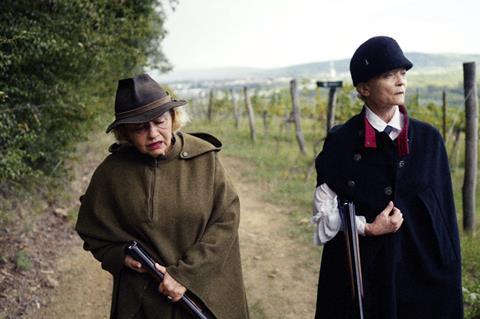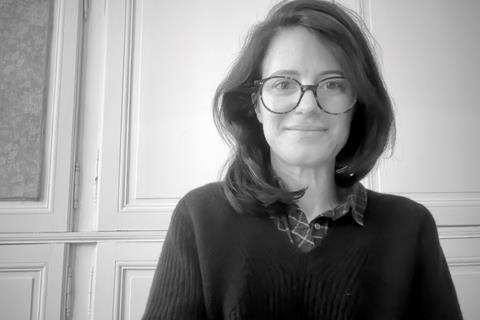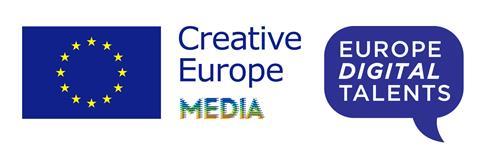
The Paris-based digital aggregator Under The Milky Way (UMW) is celebrating the successful global distribution of 28 European films including Pierre Stine’s The Long Walk and Sebastian Brauneis’ The Landlady, as it explores the next stage of its evolution.
UMW’s European Digital Talents (EDT) was launched in 2021 under its Originals label, with backing from Creative Europe Media. It received just under €200,000 in its pilot year, increasing for the three subsequent years to February 2025.
The programme is a mix of documentary and fiction features made by ‘digital natives’, all financed outside the mainstream film industry. “We see a significant opportunity for digital distribution, particularly via advertising-based video on demand (AVOD) platforms, to help these films reach international audiences,” explains Muriel Joly, managing director of UMW.
Digital distribution allows the films to reach niche audiences everywhere in the world, at a significantly lower cost than a traditional theatrical release and distribution model demands. The cost of using UMW is dependent on the length of film and subtitle requirements.
Success for EDT is measured both in terms of AVoD platform viewing figures and the traction the film gains with an audience. EDT’s biggest release to date has been Stine’s The Long Walk, a French documentary about a Norwegian woman, Aleksandra Orbeck-Nilssen, and two Ju/’hoansi bushmen, Cui Gcaq’o and Kamache Kun Jonnas, who undertake a journey of self-discovery and survival as they walk 1,490 km across Namibia.
We managed to sell The Long Walk, in addition to the traditional transaction, on VOD platform to Canal Plus in France, and also Norwegian cable company NRK,” Joly says. “It secured one of the biggest global audiences.”
EDT titles provide a snapshot of the talking points, concerns and passions of the rising digital generation. “These are films about issues that young people encounter,” as Joly puts it.

She points to Keith Albert Tedesco’s Maltese fiction film Uwijja, about student burnout as students are forced to balance working with studying and their subsequent struggles with depression. Another fictional work emerging from EDT is Austrian filmmaker Brauneis’ The Landlady, about the cost of rent for young people and how unbalanced the situation in Vienna and beyond.
“We took care to select films that raised issues about diversity,” Joly adds, citing a documentary about a promising cyclist from Eritrea who won some stages of the Tour de France in 2024. “These topics are very contemporary and refreshing in the way they are addressing the audience. It was very good news for us to see that they could meet their audiences outside of their country of origin.”
The filmmakers form an integral part of the programme. As many of the films are directed by very young creatives, they know how to reach their target digital audience. It is built in to their cultural capital, as Joly puts it.
“That’s why we rely on them for the marketing campaigns. Most of the marketing campaigns are monitored and organised by the producers or the filmmakers because they knew exactly where they could target their audience,” Joly says. “We had an Italian fiction film called Shell Of Fear directed by Luca Solina. The producers decided to organise a premiere in a theatre in Milan to promote the film.”
Boasting an Italian YouTuber and influencer among its cast, the event was a huge success, with a packed-out screening. “It shows the borders between cinema and home are not completely fixed. It’s just another way to find the audiences,” Joly says.
Next steps
UMW is looking into different models for future EDT releases now the Creative Europe Media funding round has come to an end,
“We are looking to raise money again to encourage filmmakers to allow their films to travel around the world,” says Joly.
An option is for a one- time fixed fee for the filmmakers or producers to have their film made available on at least three platforms around the world. One of the myriad benefits of working with UMW, says Joly, is its experience in getting films ‘platform-ready’ for digital roll-outs. This involves formatting, partnering with encoding houses recognised by the platforms and making sure films fit in with platform guidelines.
“Once they are delivered via the platforms, the revenues go through us and we deliver the revenues on a quarterly basis to the rights holders,” says Joly.
UMW works on a commission basis and offers complete transparency of revenues and costs. “Through our web interfaces, producers and filmmakers can see how their sales are going and to where and our team also handle all the legal parts, making sure your film is released in the territories where you have the rights,” Joly explains. “We also ensure your film is promoted on a regular basis so you can have regular revenues for your films.
“Learning from the EDT programme, we decided to work on a dedicated interface which allows the producers and filmmakers to be autonomous in their digital release,” she adds.
UMW launched in 2010 to globally exploit the catalogue titles from European studios such as Gaumont, Pathe and Studiocanal via video on demand (VoD). It also works with local distributors and producers on individual productions and now has a library of over 7,000 titles. It partners with Apple TV, Youtube and and Amazon Prime Video, as well as local VoD providers and has representatives in Japan, the US, Canada, Latin America, Spain, Italy, Germany, Scandinavia and the UK. UMW boasts a 12-strong team with Joly and three others focused on EDT, working on the selection and platform releases.
“We work to revitalise and showcase European creativity and talent globally,” says Joly.
Contact: Muriel Joly



























No comments yet